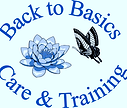


Specialist Training
Dementia Care: What is Dementia, how does it affect people, what can we do to help those with Dementia? Spend a day in their shoes. Find out what it is like to be dependent on others.
Chronic Obstructive Pulmonary Disease: What is it, the signs and symptoms, treatment, how can we help?
Diabetes: The different types of Diabetes, the long term complications and risk, types of treatment, how does Diabetes impact on the individuals day to day life?
Multiple Sclerosis: What is it, the signs and symptoms, treatment, how to provide support for the individual and their family.the emotional and physical needs.
Stroke: Signs and symptoms of stroke, Trans Ischemic Attack what is it, emergency response, treatment, timeframes, anatomy and physiology of the central nervous system?
Heart Attack: What is a heart attack, anatomy and physiology, signs and symptoms, treatment, rehabilitation.
Parkinson's: What is the cause of Parkinson's, how does it affect people, signs and symptoms, treatment and medication, the role of the Parkinson's nurse.
Brain Injury: Anatomy of the brain, types of brain injury, how it affects the individual and family.
Care of the Catheter: The different types of catheters, what is a urinary catheter, the advantages and disadvantages, reasons for cauterisation, the importance of effective infection control, how to handle, empty and change catheter bags, common issues, awareness of fluid balance and the importance of record keeping.
Oral Care for the unconscious patient: What is oral care, the importance of oral care, things to consider, how to carry out oral care.
End of life Care: What is bereavement? What is loss? Acknowledging death. Impact of death on staff and other clients. Range of emotional responses. Good practice. Care of the dying. Care of the family. Religious beliefs. Last offices.
